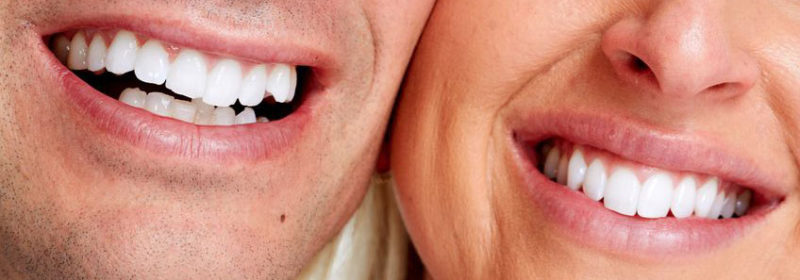
|

|

|

|

All You Need To Know About Caries Management
Dental caries is the medical term for tooth decay or tooth cavities. This decay or cavities are formed as a result of bacterial infection. These bacteria which infect the teeth can affect the teeth is two different ways – it can affect the structure of the teeth or it can affect the enamel of the teeth. The bacteria produces acid which affects the structure and enamel. This can spread to the pulp area and the whole teeth can start to decay. Dental caries is one of the leading causes of tooth loss.
Every mouth usually harbours lot of bacteria, there are lot of bacteria that help in the initial process of digestion in the mouth, and they help to break down food. But when food and drinks are consumed on a daily basis and when mouth is not cleaned properly, harmful bacteria can get mixed with the sugary food that sticks to the mouth and releases harmful acid that can lead to tooth damage.
Detecting dental caries and treatment
Symptoms
As mentioned above, the main culprit of dental caries is harmful bacteria that feed on food sticking to the surface of the teeth. These bacteria attach themselves to the food particles and mix with the saliva and produce plaque. The most common places you can notice plaque is between teeth and in the groves of the teeth. Some are also found along the gum line.
For any disease, the first would be the symptoms that tell you there is a problem. But surprisingly in the case of dental caries, you might not notice any glaring symptoms at all. As with most of the dental issues, dental caries also results in toothache in people. As the disease progresses, some might experience sensitivity in teeth or pain in the gums, difficulty in chewing and pain while chewing is also noticed.
Treatment
Routine dental check-ups will help you to find out if you are susceptible to getting dental caries. This is a gradual disease that develops because you are not following regular and good oral hygiene practices. During check-ups the dentist can inform you if you are progressing towards tooth decay. Dentists employ highly specialised tools to detect tooth decay in early stages itself.
Treatment depends on how much caries has affected your teeth. If it is in the early stages, then it can be reversed. The treatment is done in such a way that the tooth is helped to repair itself naturally. Usually in the early stages of tooth decay – white spots are noticed on the teeth. These can be pretty easy to overlook and it can progress into stronger symptoms. Dentists are able to identify these spots easily. Hence the need for routine dental examinations.
If the caries has developed extensively, then more extensive methods of treatment is needed. Depending on the oral health of the person, this can vary. Time for recovery also varies from person to person.
If the teeth has been eroded and cavity has been formed, then dentists would recommend cleaning up the cavity and filling them up or sealing them to reduce damage to the oral region. For some people, the pulp area of the teeth gets infected with bacteria, when this happens root canal is usually advised by dentists.
Types of Dental Caries
Dental caries affects people of all ages. It is seen among children and in adults as well. One can even say that you can see this in children at a higher rate because the teeth are still growing. The teeth are not fully developed and hence are not strong enough to withstand the attack of bacteria. The fact is that caries can develop quiet easily. Sugary food and bacteria is a common combination which can affect people of all ages.
Enamel Caries: The effect is on the enamel of the teeth. The bacteria causes the acid to eat away the enamel of the teeth. This will in turn effect on the functioning and structure of the teeth. Sensitivity in the teeth is one of the symptoms, some even notice staining in the teeth as the enamel is eroded.
Secondary Caries: This type of caries is usually seen in the oral region where teeth restorations have been carried out. If the restorative procedure is not suitable or if it is inadequate – then caries development is possible. Dentists will need to check the restorative procedure and set it right to treat this type of caries.
Arrested Caries: Caries that is checked and not allowed to spread is called as arrested caries. Symptoms that have developed in the oral region will be held in check as a result of practicing good oral hygiene or simple treatment.
Early Childhood Caries: This occurs in children hence the name. Children are fed milk from bottles when they are ready for their bedtime. Some of the milk remains in their mouth and the bacteria can feed on it and cause dental caries. This can also happen if children are given sugary drinks or fruit juices and their mouth is not cleaned properly.
Steps to prevent Dental Caries
There are some simple steps that you can incorporate in your daily routine to prevent caries. The basic check that can be done for dental caries is reducing the formation of plaque and harmful bacteria in the mouth. So steps that are aimed at reducing these are discussed below. These easy to follow steps are:
- Brushing teeth twice a day and flossing once a day.
- Using toothpaste that has fluoride in it is beneficial.
- Mouthwash can help prevent plaque formation.
- Incorporating diet changes in daily life – eat a complete and healthy diet.
- Reducing sugary snacks in between meals will reduce the chances of food sticking to teeth and bacteria building up.
- In the case of children, avoiding drinks that are rich in sugar, helping them get into the practice of cleaning their teeth after food etc. will help.
- Going for regular dental check-ups to weed out problems at the earliest.
If you suspect you may have dental caries, contact your dentist immediately.






